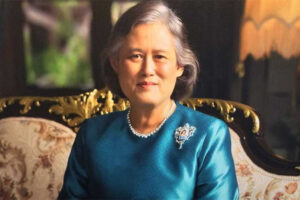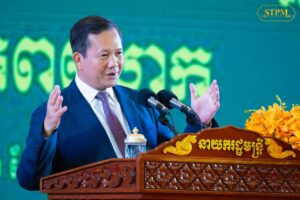Opinion: Stay in Your Lane, Madam Minister: Culture Is Not a Tool for Territorial Provocation
Khmer Times | In a statement that not only inflames regional tensions but also exposes a troubling ignorance of international law and historical truth, suspended Prime Minister and newly Minister of Culture, Ms. Paetongtarn Shinawatra, has claimed on 4 July 2025 that the Ta Mone Temple complex falls under Thai sovereignty and has been registered as a Thai monument since 1962.
Such remarks are not only unfounded and reckless—they are unbecoming of someone entrusted with the sacred task of cultural preservation. Instead of fostering unity and historical integrity, Minister Paetongtarn has chosen the path of cultural distortion and political provocation.
Khmer Temples, Cambodian Land
Let us be unequivocal: Ta Mone Thom, along with its neighboring temples Ta Mone Toch and Ta Krabey, are undeniably Khmer temples—historically, culturally, architecturally, and legally. These temples, carved by the hands of Khmer kings and nestled deep within Oddar Meanchey Province, lie well within the sovereign territory of the Kingdom of Cambodia.
Any attempt to rewrite this fact is nothing short of cultural appropriation wrapped in nationalist opportunism.
Culture Ministry or Political Weapon?
Minister Paetongtarn’s foray into geopolitics—likely aimed at drumming up domestic nationalist support—is neither informed nor appropriate. Her assertion is based on a unilateral Thai-drawn map, a document with no legal value under international law or bilateral agreements.
Cambodia has not remained idle. On June 16, 2025, the Royal Government of Cambodia submitted a formal request to the International Court of Justice (ICJ) to adjudicate the dispute, reaffirming our confidence in law over force, and diplomacy over distortion. While Cambodia seeks resolution through legal channels, Thailand continues to provoke through press statements, propaganda, and at times, military presence.
The Franco-Siamese Treaties of 1904 and 1907, along with the 2000 Memorandum of Understanding (MoU) between Cambodia and Thailand, clearly establish the use of a 1:200,000-scale map as the mutually accepted basis for resolving border issues. Thailand’s reliance on a map drawn unilaterally and retroactively registered in 1962 is a blatant violation of this shared framework—and a dangerous step backward.
The Cambodian Ministry of Culture and Fine Arts rightly condemned this baseless claim in a firm and dignified statement on July 4, 2025, reminding all parties that cultural institutions must act with professionalism, integrity, and respect for international principles—not as instruments of state-sponsored provocation.
Culture Is Sacred, Not a Battlefield
Culture exists to heal, to educate, and to bring people together. To weaponize cultural heritage for territorial aggression not only disrespects history—it twists it into a political tool of conflict.
Instead of honoring the spiritual and historical value of temples like Ta Mone Thom, Minister Paetongtarn appears more interested in revising the past and violating international understandings that have preserved peace along our shared border for decades.
If she cannot distinguish between the responsibilities of a Culture Minister and the ambitions of a political firebrand, then perhaps diplomacy—and cultural stewardship—are best left to more capable hands.
A Final Call for Responsibility
We call on the Ministry of Culture of Thailand to act responsibly, to respect historical truth, and to honor its international obligations. In moments of heightened regional sensitivity, cultural leaders should strive to defuse tensions, not inflame them.
History is not on Thailand’s side in this matter. Nor is the law. Cambodia stands on firm ground—historically, legally, and morally—in defending the sovereignty of its sacred cultural heritage. And we will continue to do so—with pride, with resolve, and with truth on our side.
By Roth Santepheap, Geopolitical Analyst based in Phnom Penh, Cambodia. The views and opinions expressed are his own.








